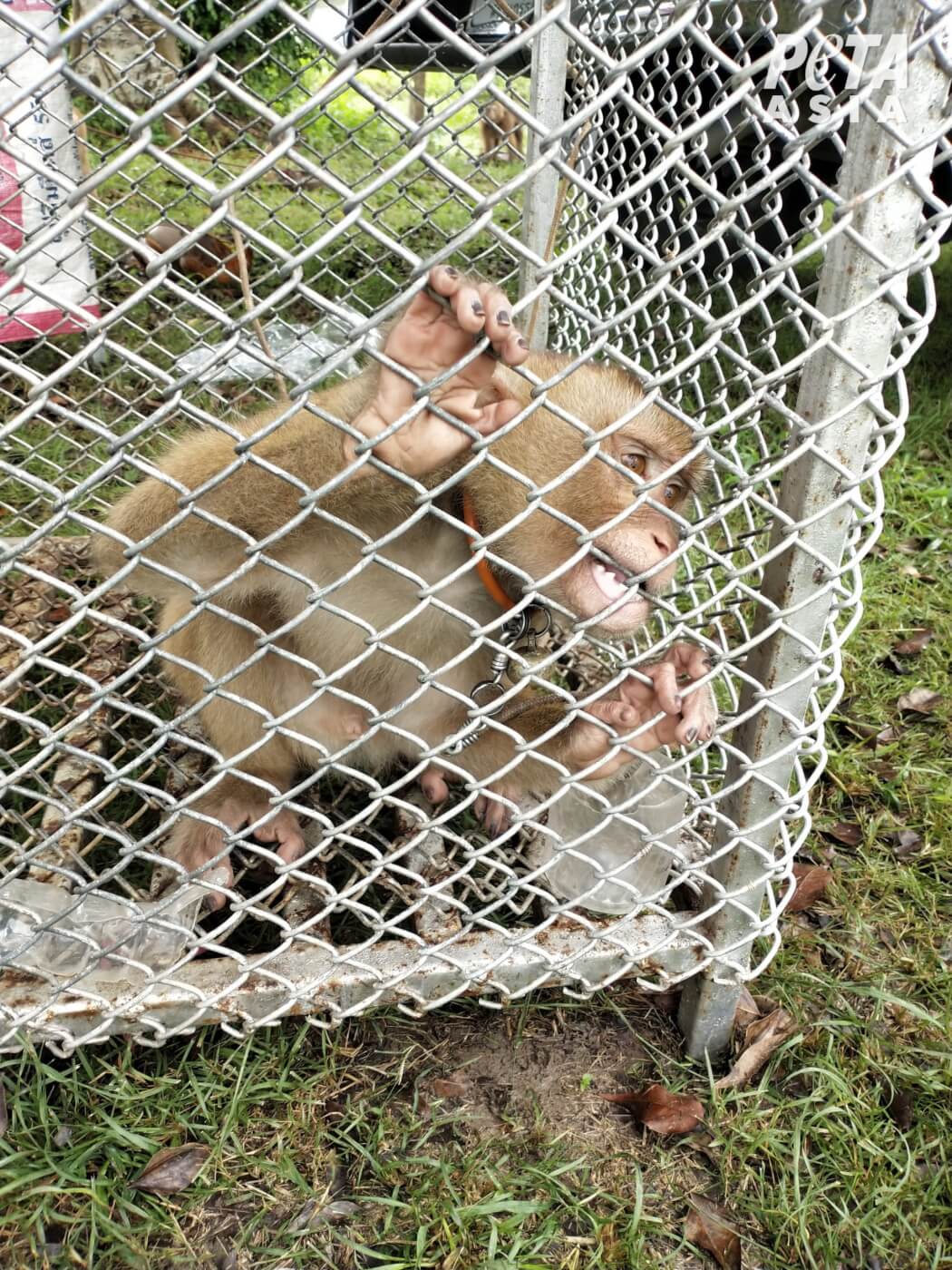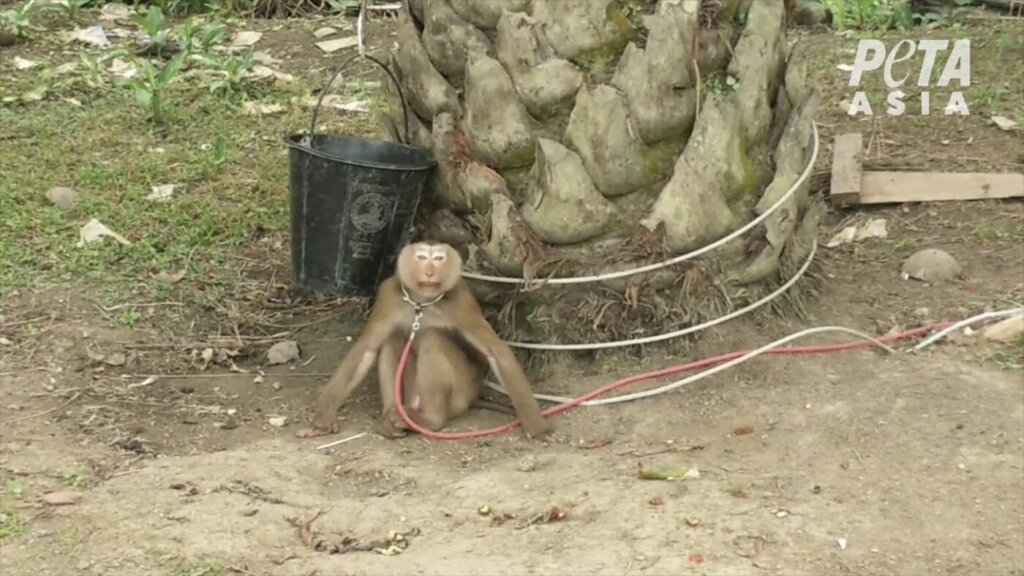Monkeys Exploited, Abused for Your Coconut Milk and Oil
Did captive monkeys pick your coconuts?
A disturbing PETA exposé reveals that terrified young monkeys in Thailand are kept chained, abusively trained, and forced to climb trees to pick coconuts used for coconut milk, oil, and other products that are sold around the world, including in Australia.
Chained and Driven Insane
PETA Asia investigators visited eight farms on which captive monkeys were forced to collect coconuts, including those supplying Thailand’s major coconut milk producers, as well as several monkey-training facilities and a coconut-picking competition using monkeys. At each one, they documented abuse and exploitation.
Many monkeys are reportedly illegally abducted from their families and homes in nature when they’re just babies. They’re fitted with rigid metal collars and kept chained or tethered until they’re no longer useful to the coconut industry.
Denied the opportunity to move around freely, socialise with others, or do anything else that’s meaningful to them, these intelligent animals slowly lose their minds. Driven to desperation, they pace and circle endlessly on the barren, rubbish-strewn patches of dirt that they’re chained to.
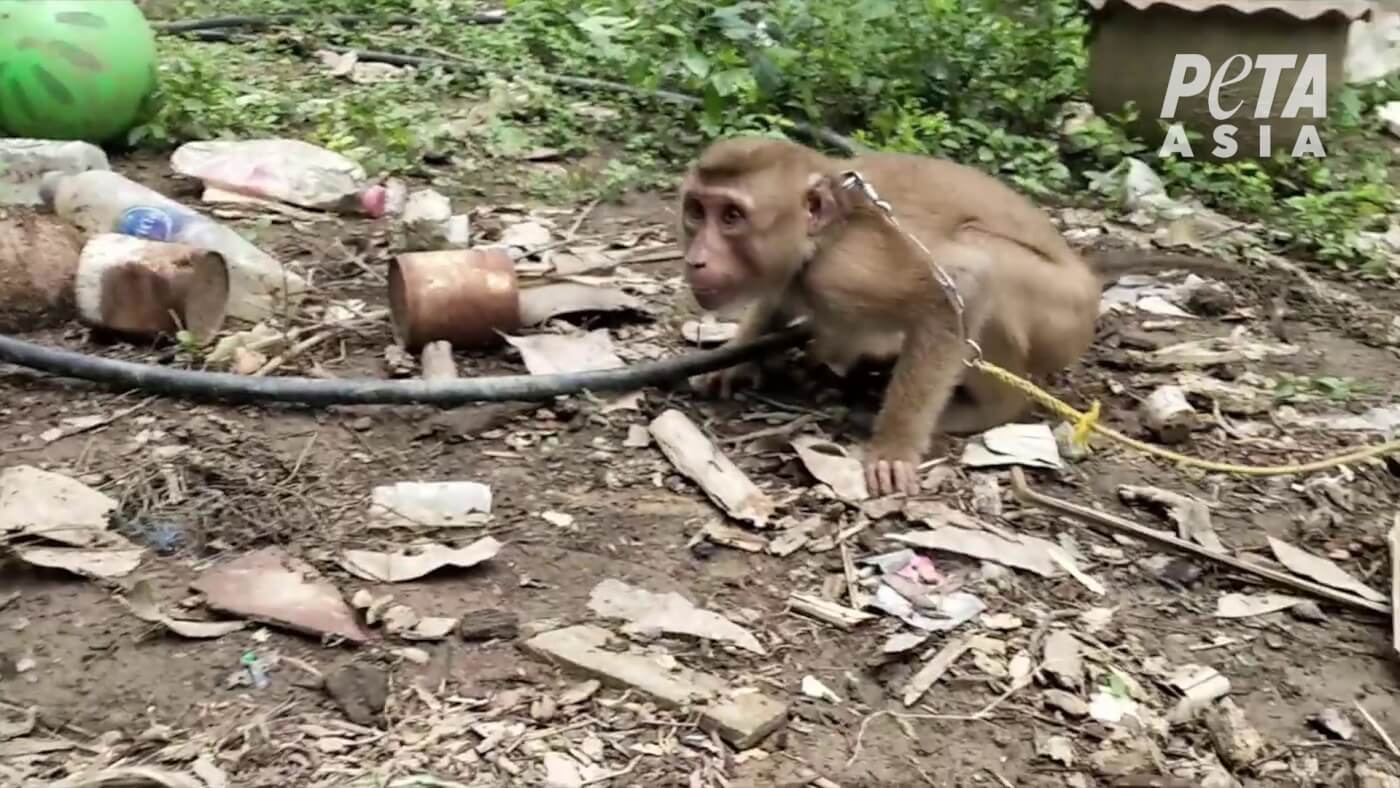
Cruelly Trained and Teeth Pulled Out
The terrified young monkeys are forced to perform frustrating and difficult tasks, such as twisting heavy coconuts until they fall off the trees from a great height. An investigator learned that if monkeys try to defend themselves, their canine teeth may be pulled out.
To earn more money off these animals, some trainers also force them to participate in circus-style shows in which they entertain paying visitors by riding bicycles, throwing basketballs, and performing other confusing and demeaning tricks.
An investigator saw monkeys being transported in cramped cages that were barely large enough for them to turn around in and others left in locked cages in the back of a ute with no shelter from the pouring rain. One monkey was seen frantically shaking the cage bars in a vain attempt to escape.
Tethered by the neck with a metal collar, the monkeys are forced to climb up and down trees and collect coconuts.
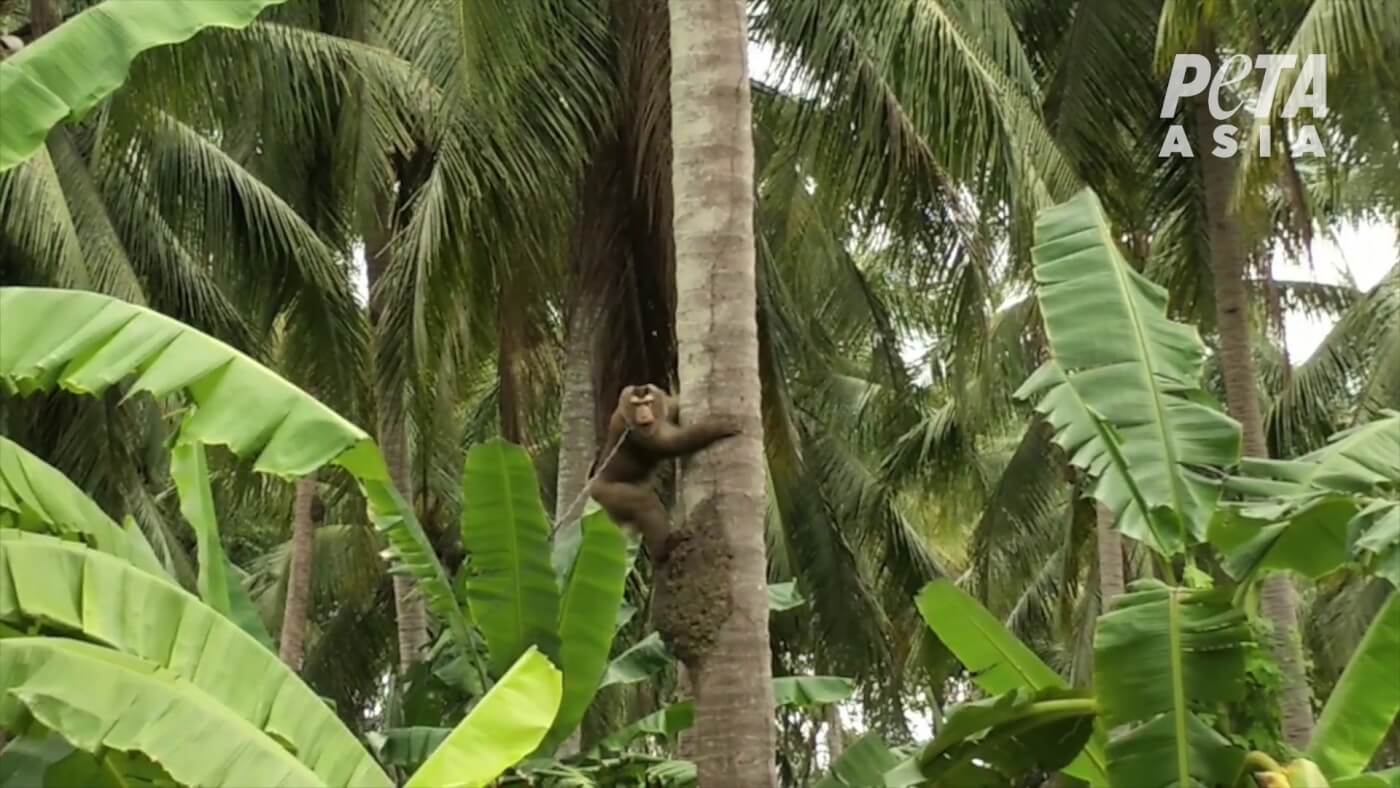
Other coconut-growing regions—including Brazil, Colombia, and Hawaii—harvest coconuts using humane methods such as tractor-mounted hydraulic elevators, willing human tree-climbers, rope or platform systems, or ladders, or they plant dwarf coconut trees. Studies have shown that these methods are superior to using monkeys, who can’t distinguish between ripe and unripe fruit, and the ripe coconuts get bruised when the monkeys drop them to the ground.
Coconut water typically comes from coconuts grown on dwarf trees, including the Nam Hom variety, and harvesting them doesn’t involve monkey labour—but this isn’t always the case. PETA has confirmed that Harmless Harvest is among the companies that don’t use monkey labor for coconut water.
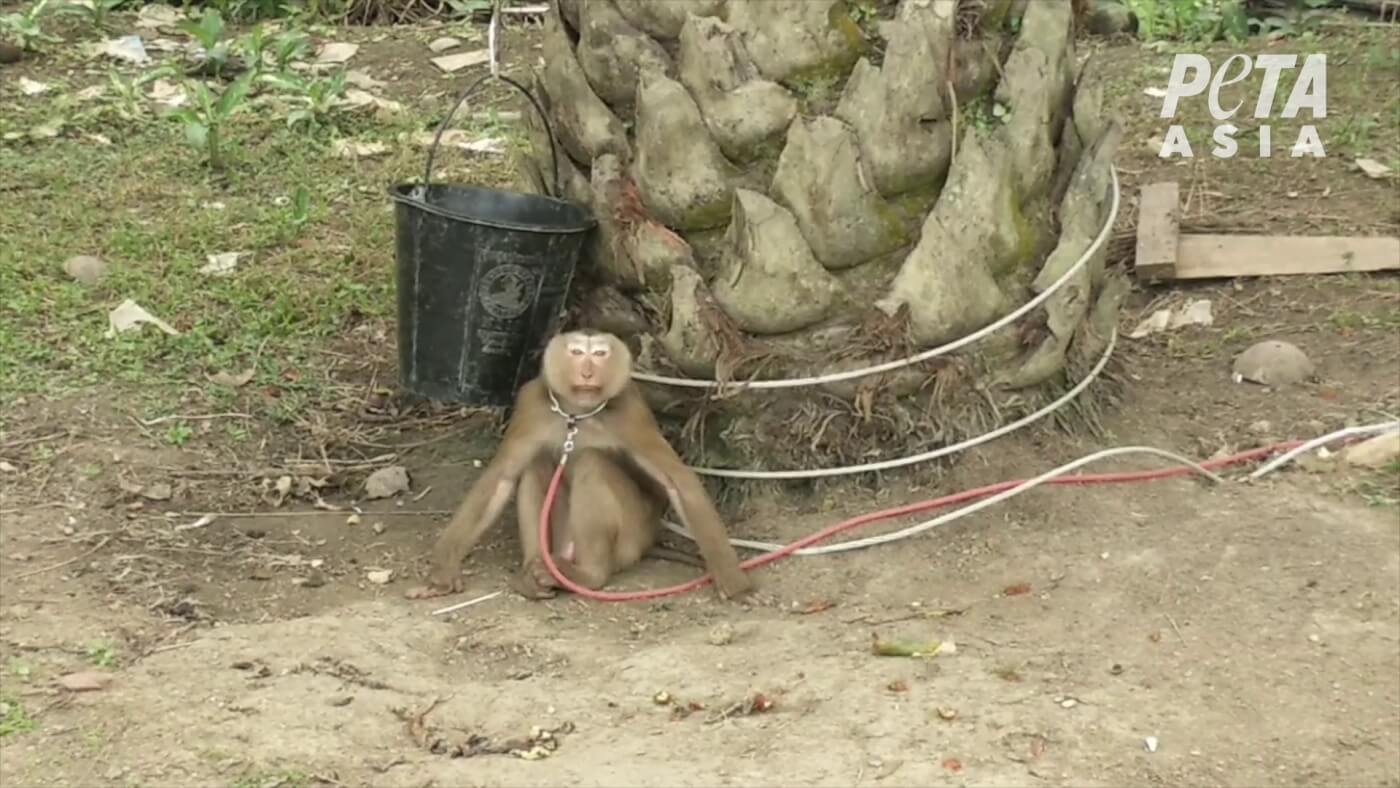
Retailers Are Taking Action
After speaking with PETA UK, supermarket Ocado has committed to never knowingly stocking any products from suppliers that use monkey labour, as has US company World Market and multinational Ahold Delhaize. Now, PETA is reaching out to Australian stores that stock these brands (or may plan to in future) to ask that they be dropped from their purchasing plans.
Help Monkeys
Please make sure that your coconut products don’t come from suppliers that use monkey labour.
During the investigation, workers told PETA Asia investigators that coconuts harvested from these facilities are sold to Aroy-D (a brand of Thai Agri Foods) and Chaokoh (a brand of the Theppadungporn Coconut Co, Ltd, which is sold under the label TCC in Australia and New Zealand).
Send a message to Chaokoh urging them to stop supporting this cruel industry by obtaining their coconuts from companies that don’t enslave monkeys:
Share this investigation with your friends and family:
